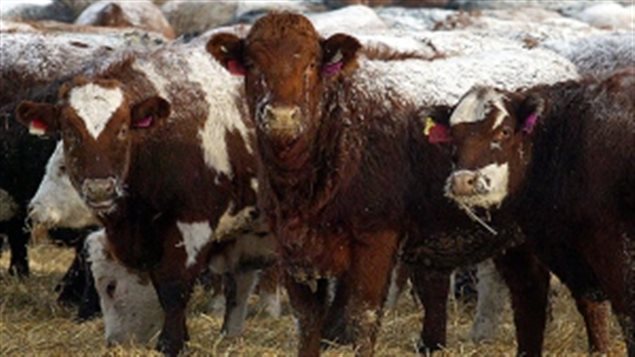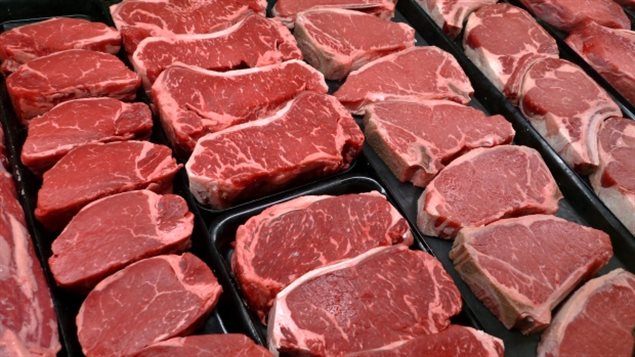The dispute concerns an American law on beef and pork products called Country of Origin Labelling, or COOL introduced in September of 2008.
The US said it was a measure to inform American consumers about the origins of their beef and pork products, but is generally believed to have been introduced as a way to boost the American industry at the expense of Canada and Mexico.
Both countries filed claims against the US and have consistently won their arguments at the World Trade Organization since 2009.
The US was seemingly out of stalling options after losing yet another appeal, but have managed to delay implementation of Canadian and Mexican tariffs on US products with another tactic.
Dave Solverson is president of the Canadian Cattlemen’s Association. He operates a 5,000 acre ranch and cattle feedlot operation near Camrose Alberta.
Listen
The Canadian cattle and pork industry says it has lost some 1.4 billion dollars per year as a result of the American COOL laws,
In losing it’s fourth challenge, it was widely thought the US had exhausted legal avenues and would have to comply or face trade retaliation from Canada and Mexico.
The DSB ruled in November 2011 that COOL was in breach of Washington’s world trade obligations. The US lost an appeal in June 2012 and lost again with a compliance panel in October 2014, and lost yet another appeal in May of this year, it’s fourth and seemingly last chance to repeal or substantially change COOL.
This month Canada was to meet with the the WTO Dispute Settlement Body (DSB) to discuss authorizing a $3 billion Canadian tariff on US goods.
Instead the US found another delaying tactic. In a notice sent to the DSB officials in Washington said the US “objects to the level of suspension of (trade) concessions or other obligations” Canada proposes in its request. In other words, in a not totally unexpected tactic, they are now disputing Canada’s numbers as to the harm COOL has caused, and the extent of possible tariff retaliation.

The US cited a WTO interpretation of its dispute settlement rules that calls for such an objection to be referred to arbitration.
On hearing of the request, Canada’s Agriculture Minister Gerry Ritz and Trade Minister Ed Fast said on June 17 that the federal government is “disappointed that the U.S. is attempting to prolong the WTO process by requesting arbitration.”
The US House of Representatives passed a bill to repeal COOL this month, but the situation has stalled in the US Senate, where several senators, still insist on some form of COOL.
With the latest US action, Canadian retaliatory tariffs are likely only to begin in the late summer or fall if the US does not change its laws to satisfy Canada and Mexico.







For reasons beyond our control, and for an undetermined period of time, our comment section is now closed. However, our social networks remain open to your contributions.